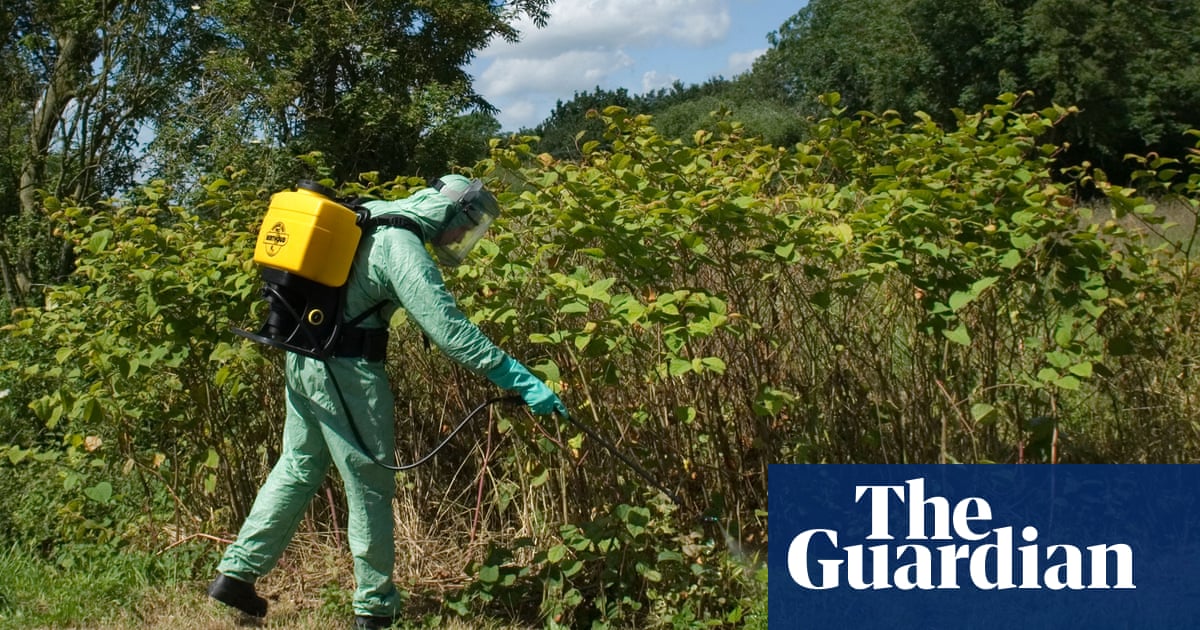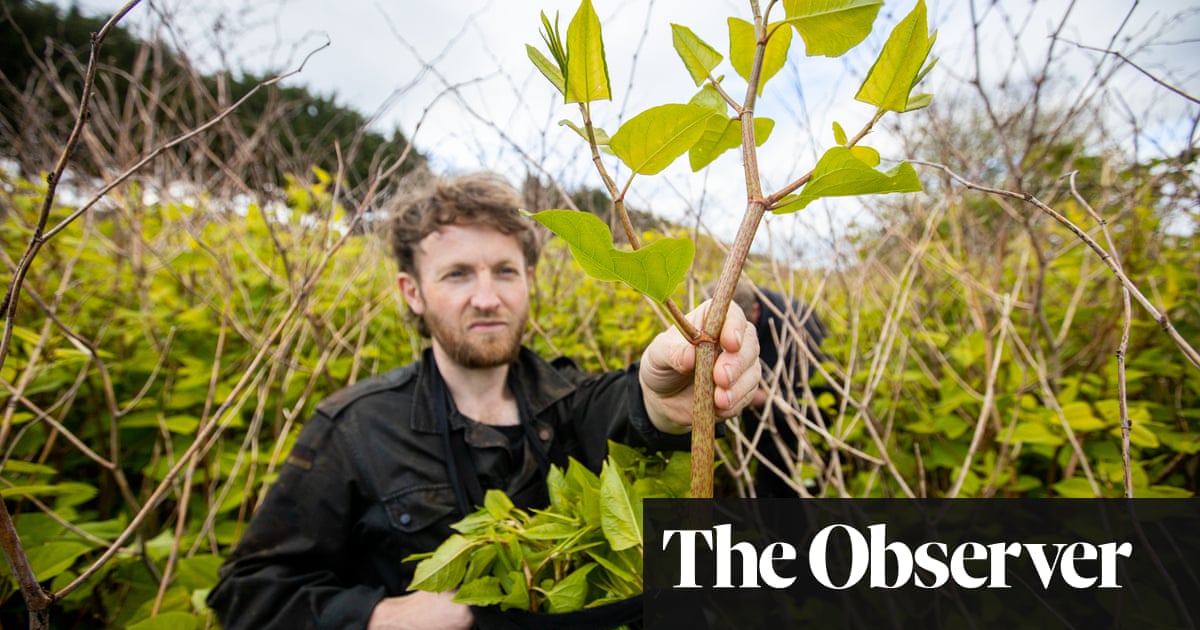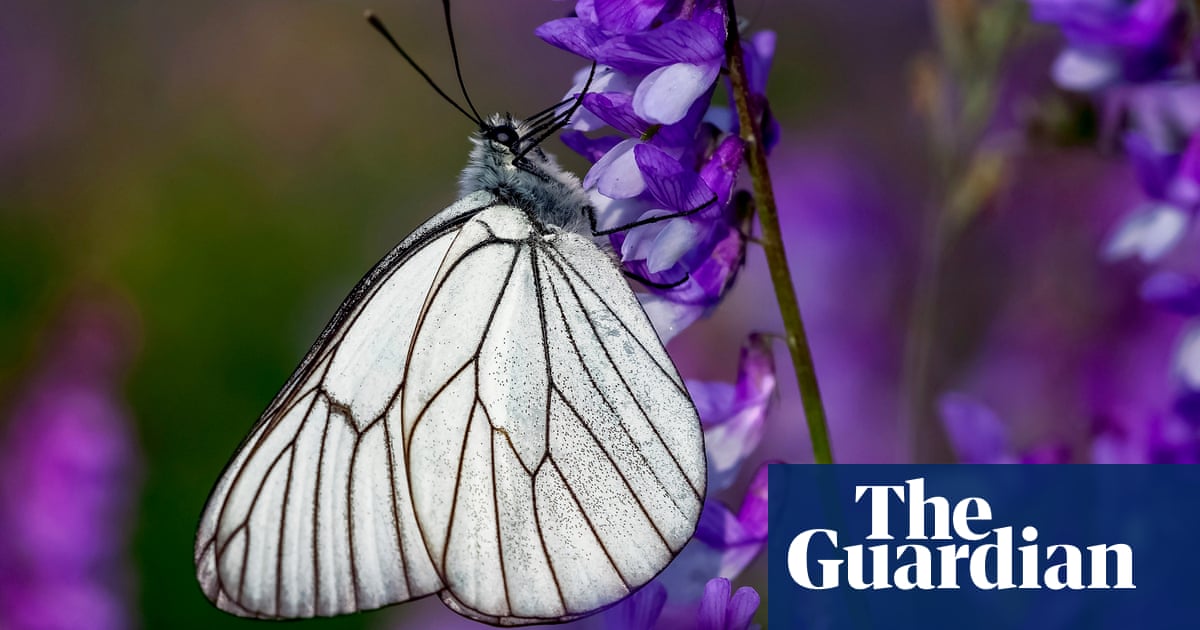
From Japanese knotweed to a fungus that kills ash trees, tackling invasive non-native species now costs the UK economy about £4bn, up from £1.7bn in 2010, research suggests.
There are about 2,000 invasive non-native species (Inns) in the UK, and about 12 new ones establish themselves each year, adding, along with inflation, to the rise in costs.
The economic impact is laid out in a study funded by the Department for Environment, Food and Rural Affairs, with the ash tree-killing fungus Hymenoscyphus fraxineus, also known as ash dieback, the most economically damaging species over the past decade, now costs about £883.5m a year. Originating in Asia, it incurs huge clean-up costs near roads, railways, buildings and other publicly accessible land.
Japanese knotweed, introduced in the mid-19th century as an ornamental garden plant, is the next most expensive, costing about £246.5m as it colonises roadsides, riverbanks and derelict land. It is known to cause damage to lightweight structures such as conservatories, garages and boundary walls, which can be expensive to rectify and decrease the value of properties substantially.
Overall, annual estimated costs in 2021 associated with Inns were £3bn for England, £499m for Scotland, £343m for Wales and £150m for Northern Ireland, according to the research carried out by the international scientific organisation Cabi.
The species include rabbits, beloved as a pet but hated as a pest, introduced to Britain by the Romans about 2,000 years go. They can destroy agricultural areas by overgrazing, while burrowing affects the quality of pastures, meaning rabbits cost an estimated £170m. Rats and mice (£84m), cockroaches (£69m) and non-native deer (£62m) are among other costly species.
The cost to forestry from Inns has increased eightfold since the previous report in 2010 and is now estimated at £123m, while in agriculture, the most affected industry, they cost the UK economy about £1.1bn. Their impact on construction, development and infrastructure was £270m, and on tourism and recreation it was £136m, the scientists said.
Dr Richard Shaw, a Cabi co-author of the research, which was published in the journal Biological Invasions, said: “This assessment again shows the important costs of Inns to the UK economy. Few effects of Inns specific management efforts can be seen in these results. However, they highlight the need to continue prevention and early detection, followed by eradication of the highest-risk species prior to establishment.”
Established non-native species include killer shrimp, giant hogweed, mink and parakeets, while those that have arrived recently and had a big impact include H fraxineus and the sea squirt Didemnum vexillum.
Dr Rene Eschen, the lead author and a Cabi senior scientist, said that while the overall cost of Inns to the UK economy had increased, there had also been decreases in some species such as rabbits, possibly due to effective management.
This article was amended on 6 July 2023. An earlier version said that Japanese knotweed “is known to cause structural damage to properties”. The latest guidance from the Royal Institution of Chartered Surveyors is that it poses little or no risk of structural damage to robust buildings with substantial foundations such as dwellings, as opposed to less sturdy structures with shallow foundations, such as conservatories, garages or boundary walls. This has been clarified.












